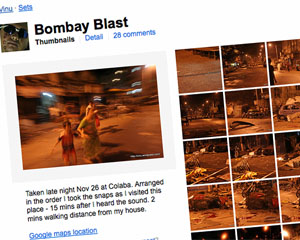Further to the interview and news item on the Journalism.co.uk main page, here is the Peyton family’s official statement, made following the conclusion of the inquest investigating the circumstances of BBC journalist Kate Peyton’s death in Somalia in 2005. The Coroner’s verdict can be read here, as reported at the Guardian.
“We are gratified that, after nearly four years, the Coroner has been able to offer some advice as to how the BBC might improve its treatment of journalists asked to undertake dangerous assignments – especially when there may be aspects of their personal lives or of the nature of their employment that impair their capacity to make a clear and considered judgment of issues of risk, both to themselves and their colleagues.
“However, we have found it baffling, depressing and exhausting that the BBC has put so much of its energy, and considerable financial resources, into preventing that advice from being heard – beginning in 2005 with a claim from a senior newsgathering executive that it was ‘neither necessary nor appropriate’ to look into the detail of the deployment and the role of Kate’s immediate manager in it, and concluding with strenuous efforts to narrow the Coroner’s scope so radically that nothing would have been considered other than events after Kate’s arrival in Mogadishu.
“We would like to believe that the BBC is sincere in its assurance, given in court, that it will incorporate the Coroner’s advice into its future procedures; but given that, since this summer, it has strained every nerve to prevent him from having the opportunity to deliver that advice, and even now has not ruled out judicially reviewing his decision, we have reason to doubt its seriousness.
“We wholeheartedly agree with the substance of the Coroner’s advice. In light of it, we would like to ask whether it is sensible to employ journalists who may be asked to go to dangerous countries on a regular basis using short-term contracts. In our view, this practice presents a clear possibility of the repetition of tragedies such as this.”
